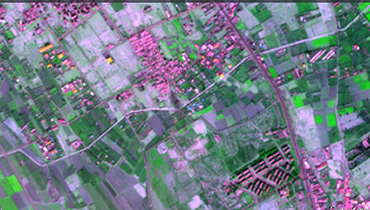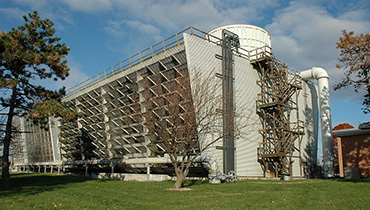2023 - Evaluación Ex-ante del desarrollo rural Sostenible mediante técnicas de minería de textual y análisis del espacio rural de internet. Caso de las comarcas rurales de la Comunidad de Madrid (España)
| Doctorando: |
María Consuelo Fariña García |
| Nacionalidad: | Española |
| Universidad: | Universidad Politécnica de Madrid |
| Facultad/Escuela: | ETSI Agronómica, Alimentaria y de Biosistemas |
| Año: | 2023 |
| Calificación: | Sobresaliente |
| Director: | Victor Luis de Nicolás |
| Enlace: |
Resumen:
Este trabajo se centra en la evaluación del DRS, que deberá tener en cuenta las particularidades generales de los territorios rurales y, por otro lado, aquellas que son propias del territorio de estudio. Antes de decidir qué políticas aplicar para avanzar en el DRS, es necesario realizar un diagnóstico del territorio rural para evaluar su estado y detectar necesidades, debilidades, amenazas, fortalezas y oportunidades. Además del diagnóstico DAFO, se debe realizar una evaluación ex ante del DRS. Existen distintos métodos para evaluar la sostenibilidad, que se pueden aplicar para evaluar el DRS, sin embargo, desde que la ONU presentó en 2015 la Agenda 2030, los diecisiete Objetivos de Desarrollo Sostenible (ODS) se han convertido en una herramienta idónea para evaluar el DS a través del análisis de sus indicadores. Cada ODS cuenta con un conjunto de metas e indicadores que permiten medir su estado y su avance. Sin embargo, aunque estos indicadores son una buena herramienta para evaluar el DRS, su análisis es complejo y costoso, ya que se deben recopilar con conjunto amplio de datos para el cálculo de cada indicador. La precariedad económica de las zonas rurales no favorece a las posibilidades de realizar una evaluación previa de calidad que ayude a la toma de decisiones sobre qué proyectos o acciones son los más adecuados para avanzar en el DRS. Por esta razón, es necesario encontrar métodos más económicos que permitan aproximarse a la evaluación del DRS de los territorios que sean más sencillos, económicos y que ofrezcan información útil. En este trabajo se propone un modelo de análisis del DRS a través de los ODS en un utilizando fuentes de datos alternativas analizados con técnicas de Minería Textual. Estas fuentes son documentos de texto del territorio digitalizados y datos recogidos en el espacio rural de internet (ERI).
Abstract:
Interest in "Sustainable Development" has been growing in recent years until it has acquired a global perspective. However, global effects require local actions and while on a small-scale sustainability is being considered in projects, sustainable development is generally not contemplated in an integral way. It is necessary to have a multidisciplinary approach to sustainability to achieve a real Sustainable Development, considering the three axes of sustainability: social, economic and environmental. On the other hand, Sustainable Development cannot be approached in the same way inurban areas as in rural areas. Cities tend to be further away from the natural environment and their economy is more linked to the secondary and tertiary sector. Rural areas, on the other hand, are more linked to the natural environment and their economy includes the primary sector. Therefore, it is necessary to differentiate two types of Sustainable Development: Sustainable Urban Development and Sustainable Rural Development (SRD).
This work focuses on the evaluation of the SRD that must consider the general particularities of the rural territories and, on the other hand, those that are typical of the study territory. Before deciding what policies to apply to advance in the SRD, it is necessary to carry out a diagnosis of the rural territory to evaluate its state and detect needs, problems, and strengths, etc. There are different methods to assess sustainability, but since the UN presented the 2030 Agenda in 2015, with its seventeen Sustainable Development Goals (SDG), they are a good tool to evaluate this development, through the analysis of its indicators. The SDG are currently the main reference for Sustainable Development and each one has a set of targets and indicators that allow measuring their status and progress. However, although these indicators are ideal for evaluating the SRD, their analysis is complex and expensive, since there must be a broad set of data for each indicator that must be previously collected. The economic precariousness of rural areas does not favor the ability to carry out a prior evaluation of the quality SRD, which facilitates decision-making on which projects or actions are the most appropriate to advance in it. For this reason, it is necessary to find alternative methods or support tools to carry out the evaluation of the SRD, which are simpler, cheaper and that offer useful information for its evaluation. This paper proposes to analyze the SDG in a rural territory through alternative data sources. These sources consist of textual documents, whose analysis will be carried out by means of Textual Mining techniques












